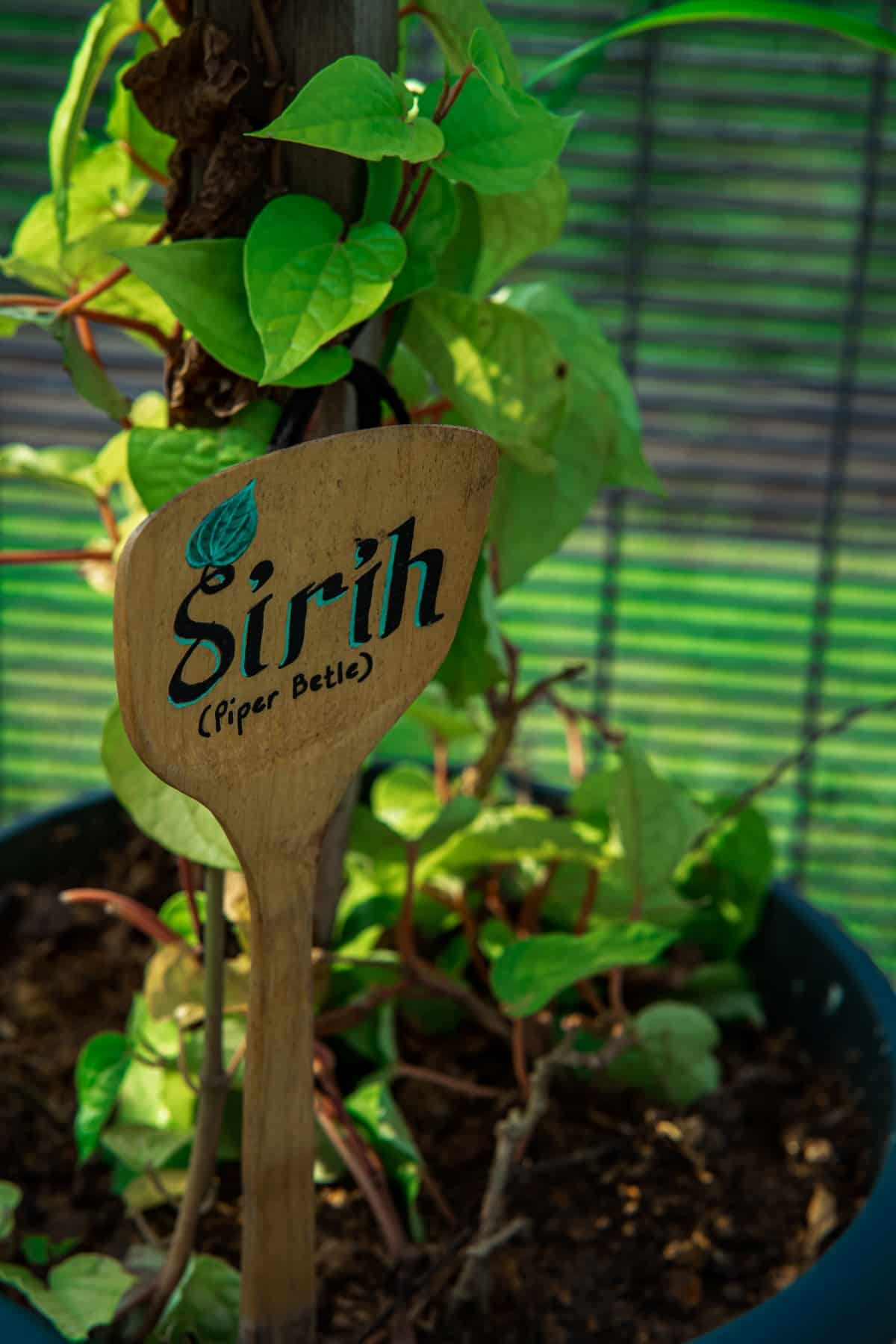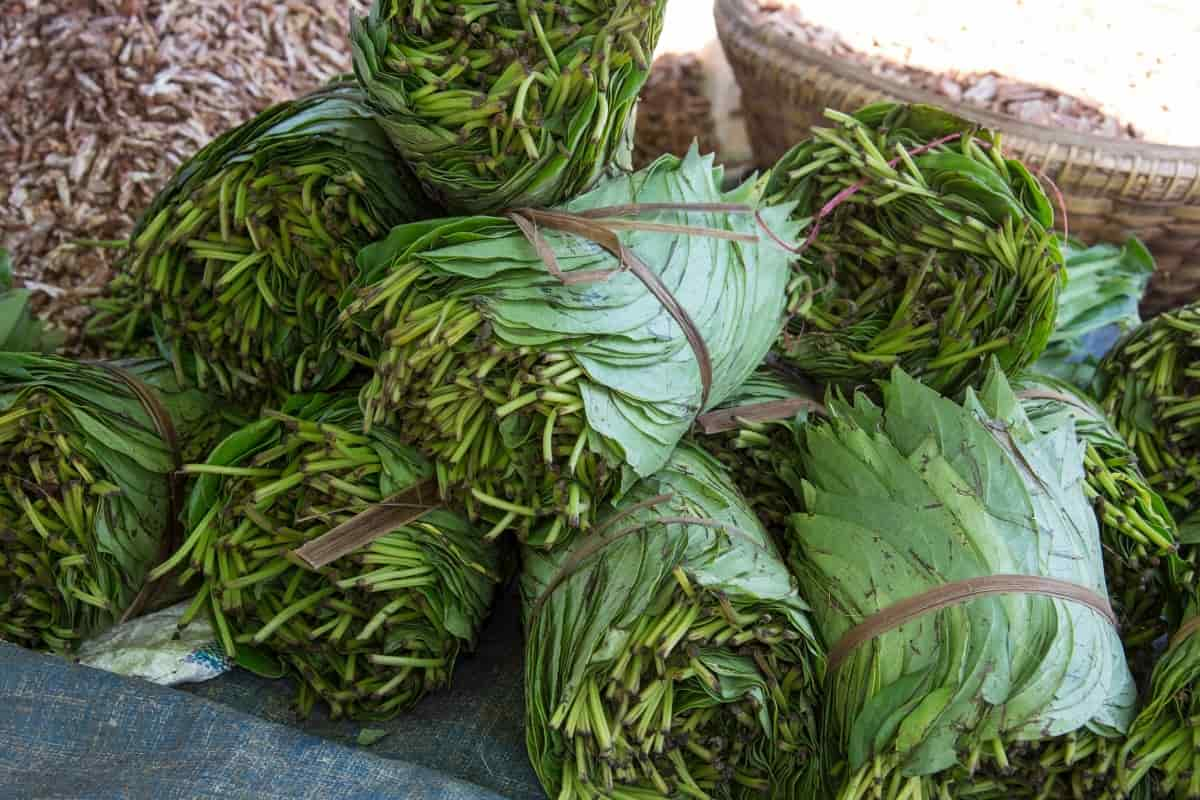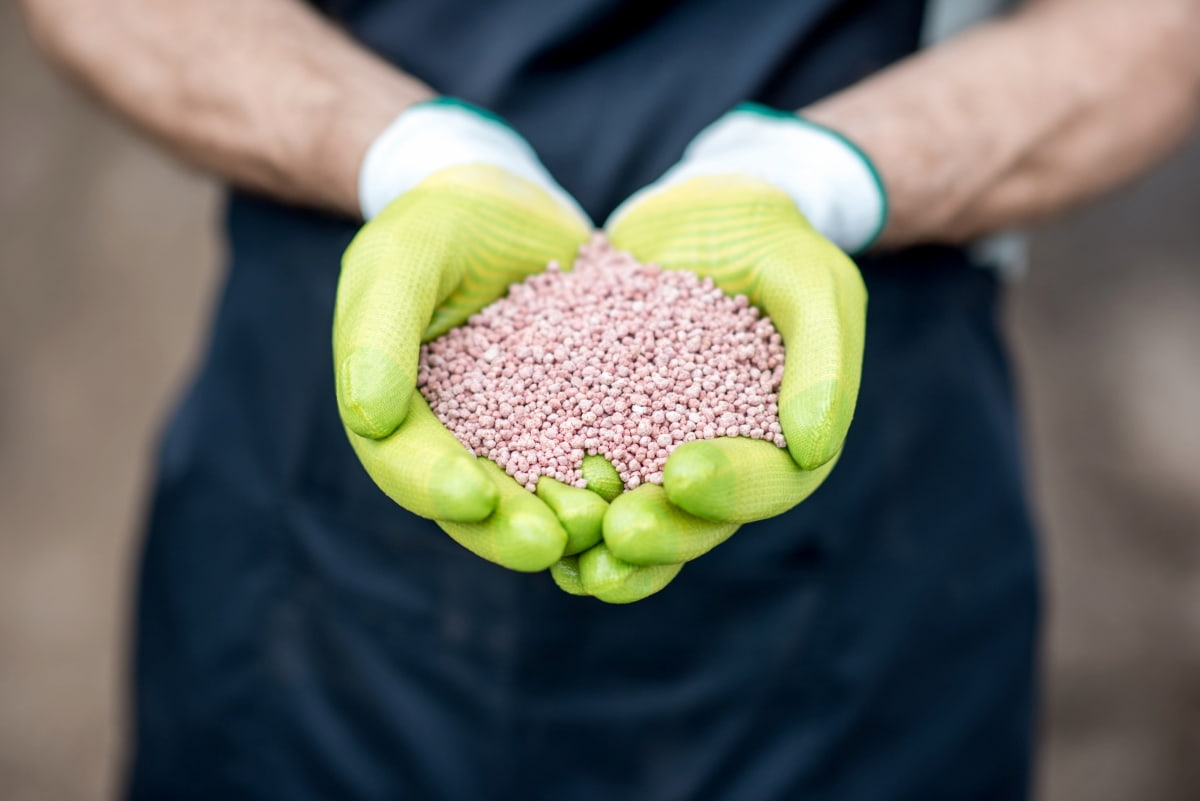Betel leaf, or Paan, is a perennial plant that is popularly used in Southeast Asia and certain areas of the Indian subcontinent. The Betel leaf has been cultivated for centuries for its distinct flavor and medicinal properties. This vine thrives in well-drained, fertile soil rich in organic matter. Hence, choosing the right organic fertilizer is critical for healthy Betel leaf growth.

Organic Fertilizer for Betel Leaf
Why Organic Fertilizer for Betel Leaf
Organic fertilizers are a sustainable choice for Betel leaf cultivation. These fertilizers improve soil structure, enhancing its ability to hold water and nutrients. Organic fertilizers also promote beneficial soil microorganisms’ growth, contributing to the plant’s overall health. Furthermore, they are eco-friendly, reducing the environmental footprint of your garden.
Choosing the Right Organic Fertilizer
Organic fertilizer for Betel leaf plants relies on soil conditions and the development stage. For instance, if your soil lacks nitrogen, an essential nutrient for leafy growth, you might consider a nitrogen-rich fertilizer like composted manure or blood meal. If your plants are about to flower, a phosphorus-rich fertilizer like a bone meal can be beneficial.
However, if the soil lacks micronutrients like calcium or magnesium, try organic fertilizers like seaweed or fish emulsion. Remember, the key to choosing the right organic fertilizer is to understand the nutrient needs of your plants at different stages of growth and to match those needs with the right type of fertilizer.
Types of Organic Fertilizers for Betel Leaf
- Compost: Compost is a rich source of essential nutrients and is one of the best organic fertilizers. It improves the soil structure and promotes the growth of beneficial microorganisms. You can make compost at home using kitchen scraps, yard waste, and other organic materials.
- Vermicompost: This is a type of compost made using earthworms. The worms break down organic material into a nutrient-rich substance that is excellent for plant growth. Vermicompost is a potent source of Nitrogen, Phosphorous, and Potassium (NPK), essential for Betel leaf growth.
- Organic Manure: This includes cow dung, horse manure, or chicken droppings. These manures are rich in nutrients and can improve soil fertility. However, it’s crucial to compost these manures to kill any pathogens present properly.
- Bone Meal and Blood Meal: Both are animal by-products rich in essential nutrients. Bone meal is high in phosphorus, beneficial for root development, while blood meal is an excellent nitrogen source, promoting leafy growth.
When to Apply Organic Fertilizer for Betel Leaf
Knowing when to apply organic fertilizer to your Betel leaf plants is essential for their health and productivity. Fertilise throughout the growing season when plants can use nutrients optimally.
- Initial Stage: Add enough compost or well-rotted manure to the soil before planting. This will provide a nutrient-rich environment for the new plants to thrive.
- Growing Stage: A regular feeding schedule should be maintained once the plants have been established. Betel leaf plants typically require additional nutrients every 4-6 weeks during the growing season.
- Before Flowering: If your Betel leaf plants are mature and about to flower, a phosphorus-rich fertilizer like a bone meal can be beneficial. This will enhance flowering and fruiting.
- Post Harvest: The plant would have depleted its nutrient reserve after harvesting the leaves. A balanced organic fertilizer can replenish these nutrients and prepare the plant for the next growth cycle.
In case you missed it: The Best Fertilizer for Magnolia: When and How to Apply

Preparing the Soil for Fertilization
- Soil Testing: This is an important step in understanding the current nutrient status of your soil and determining what nutrients it might be lacking.
- Soil Amendment: Depending on your soil test results, you might need to amend your soil. This can involve adding organic matter like compost to improve the soil structure or lime to adjust the pH level.
- Soil Aeration: It’s essential to ensure that your soil is well-aerated before applying fertilizer. This can be done by gently tilling the soil or using a garden fork to create small holes. Good aeration allows the fertilizer to penetrate the soil and reach the plant roots more effectively.
How to Apply Organic Fertilizer to Betel Leaf
- Soil Testing: Start by testing your soil to understand its nutrient composition.
- Preparation: Some preparation might be necessary depending on theorganic fertilizer you useg. For instance, compost and manure should be well-rotted before use, while bone and blood meals might need to be mixed with compost to ensure a balanced nutrient supply.
- Application: Apply the organic fertilizer around the base of the Betel leaf plant, avoiding direct contact with the stem. This can prevent possible stem burn due to high nutrient concentration.
- Incorporation: Lightly mix the fertilizer into the top layer of the soil. This helps the nutrients penetrate the soil and reach the roots more effectively.
- Watering: After applying the fertilizer, water the plants thoroughly. This helps to dissolve the nutrients and make them readily available to the plant roots.
Managing Organic Fertilizer for Betel Leaf
While organic fertilizers are generally safe, over-fertilization can still pose problems, such as a nutrient burn or an imbalance in the soil’s pH level. Therefore, it’s crucial to manage your use of organic fertilizers effectively.
- Monitor Plant Health: Regularly check your Betel leaf plants for signs of nutrient deficiency or excess. Yellowing leaves, slow growth, or wilted leaves can indicate a nutrient imbalance.
- Adjust Fertilization Schedule: Depending on the plant’s health, you might need to adjust your fertilization schedule. Additional fertilization might be necessary if the plants show signs of nutrient deficiency.
- Use a Balanced Approach: Always aim for a balanced nutrient supply. While Nitrogen, Phosphorus, and Potassium (NPK) are critical, Betel leaf plants also need other micronutrients like calcium, magnesium, and iron. Using a variety of organic fertilizers can help ensure a balanced nutrient supply.
In case you missed it: The Best Fertilizer for Jasmines: When and How to Apply

Conclusion
Using organic fertilizers for Betel leaf cultivation benefits the plant’s health and productivity and contributes positively to the environment. By understanding the types of organic fertilizers available, knowing when and how to apply them, and managing their use effectively, you can ensure the robust growth of your Betel leaf plants. Successful gardening involves observation, patience, and a willingness to adjust your practices based on your plants’ responses.
- Feed Your Flock for Less: Top 10 Tips to Save on Chicken Feed
- Ultimate Guide to Ossabaw Island Hog: Breeding, Raising, Diet, and Care
- Hatching Answers: The Top 10 Reasons Your Chickens Aren’t Laying Eggs
- Eggs and Economics: Breaking Down the Cost of Raising Backyard Chickens
- Defend Your Greens: Proven Methods to Keep Iguanas Out of Your Garden
- Ultimate Guide to Cinnamon Queen Chicken: A Comprehensive Guide for Beginners
- Ultimate Guide to California Tan Chicken: Breeding, Raising, Diet, Egg-Production and Care
- Ultimate Guide to Marsh Daisy Chicken: Breeding, Raising, Diet, and Care
- 10 Types of Chicken Farming Businesses You Can Start for Profits